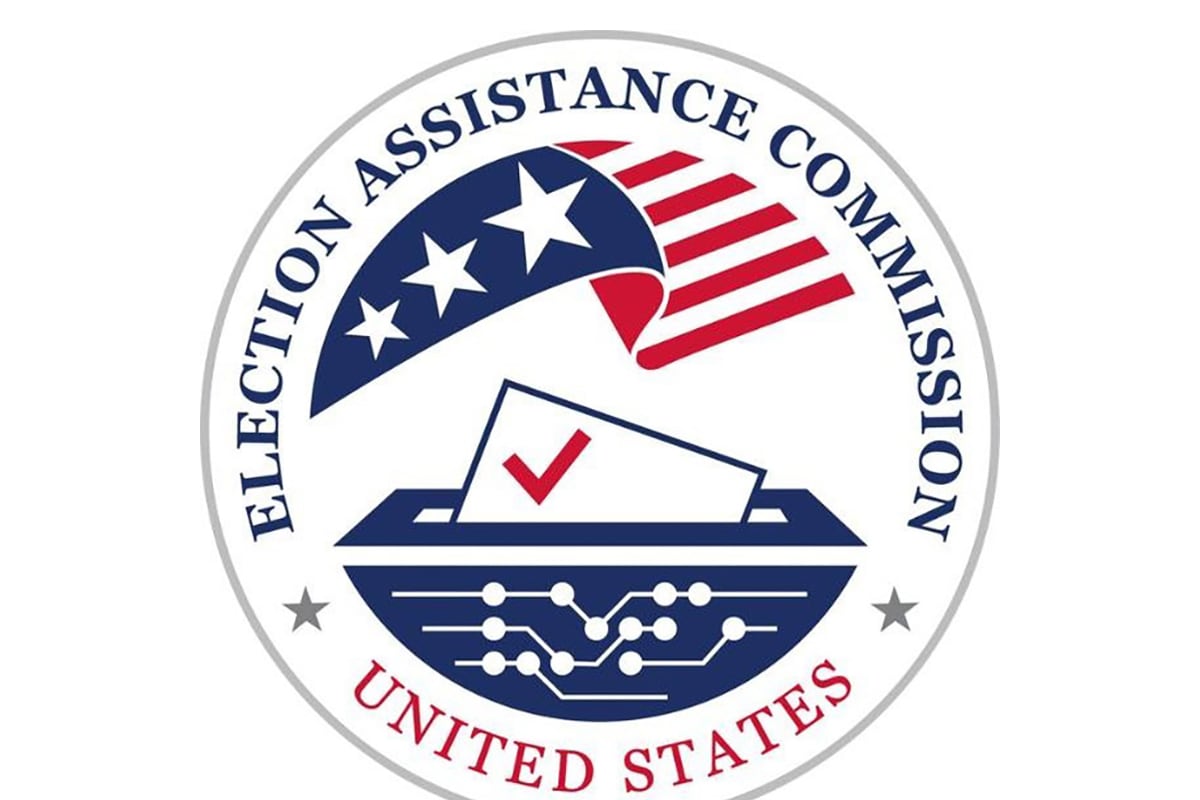Votebeat is a nonprofit news organization reporting on voting access and election administration across the U.S. A version of this post was originally distributed in Votebeat’s free weekly newsletter. Sign up to get future editions, including the latest reporting from Votebeat bureaus and curated news from other publications, delivered to your inbox every Saturday.
Some news: The U.S. Election Assistance Commission has fired its executive director, Steven Frid, who held the job for less than a year. Frid was the agency’s third executive director in as many years. The agency has also been without a permanent general counsel for nearly two years without even an interim counsel for a year — the temporary replacement left for a job at the Federal Emergency Management Agency last February.
The EAC has confirmed Frid’s departure. Sources with direct knowledge of the decision confirm he was fired.
The executive director and the general counsel represent the top two staff positions in the agency. That means the agency’s chief information security officer — who would otherwise be focused on crucial cybersecurity issues that are obviously relevant to 2024 — is now filling in as executive director. The agency is beginning a search for a different interim director while they look for a permanent replacement.
I’ve spent much of my career writing about how (and why) the EAC isn’t a particularly effective agency. Here are some of those headlines:
- “How the Election Assistance Commission Came Not to Care So Much About Election Security.” (Nov. 2018)
- “Federal Election Agency, Hungry for Funds, Now Pays for Officials to Get to Office.” (July 2019)
- “How Voter-Fraud Hysteria and Partisan Bickering Ate American Election Oversight.” (July 2020)
- “How Trump ally Cleta Mitchell won a seat on the EAC advisory board” (Nov. 2021)
That’s not to suggest that the EAC has been entirely ineffective. The agency, for example, efficiently distributed emergency funds during the pandemic and recently updated the (very out-of-date) standards for voting systems it maintains. But, repeatedly, apparent progress is derailed and the agency finds itself largely back where it was.
Four commissioners — two Republicans and two Democrats — are responsible for running the agency, which despite its small size clearly does important things. It is, some election administrators will tell you, the best shot the country has at sane election guidance from the federal government.
While many election administrators long ago reached the opinion that the EAC was never going to amount to an effective voice in elections, many still hold out hope that an agency they see as a crucial conduit to Congress and the White House will get its act together. I’ve had dozens of conversations with dozens of such people that go something like this: “Did you see that the EAC hired [insert name here]? They could do some good there.”
Inevitably, that person — a new project manager, a new technologist, a new executive director, a new attorney — leaves or is fired within two years.
This pattern of turnover for the executive director and general counsel began in 2019, when the pair of officials who’d held the roles since 2015 were not rehired as their contracts expired. Both were replaced in the summer of 2020 by permanent candidates. About a year-and-a-half later, both positions would be vacant yet again: Executive Director Mona Harrington left for CISA in January of 2022, and General Counsel Kevin Rayburn left for the postal service that February.
An interim general counsel filled the role until leaving for FEMA a year later, and it has been open since. An interim also held the executive director position until Frid was hired in January 2023. Then Frid lasted until late December.
So — as in 2020 — the EAC begins the 2024 federal election year without both an executive director and a general counsel.
Rather than being allowed to focus entirely on supporting local election administrators this year, the agency’s four commissioners will have to continue filling open positions. By law, the EAC will also have to convene an ad-hoc group of state elections administrators to recommend replacements. These folks, obviously, also have a lot to do this year.
On top of it, that committee has rarely been listened to by the EAC’s commissioners: since at least 2019, no person recommended by this committee has been chosen. No one I’ve spoken to who has served on this committee in the past expects it will be any different this year.
In the last eight years, several meetings about the EAC I have attended have really been about — whether this was the stated topic of discussion or not — how the agency can’t attract or keep staff. Past employee surveys and Office of Inspector General reports have, likewise, repeatedly noted high turnover and lack of staff satisfaction. Every single one of the current commissioners is on a holdover term, as congressional leadership has declined to formally renominate them or replace someone else when their terms expired. The entire agency, it seems, is suffering from hiring problems.
A recent OIG report said that while the elections community has growing expectations for the small agency, the “EAC has limited staff and a growing mandate, and conditions make this challenging to overcome.” The report indicates that salary caps at the agency and other internal limitations make it difficult to find qualified staff willing to take the jobs. And, so, any rare success the agency has achieved with its hires in recent years has been awkward to sustain.
So, unless the commissioners can pull off a miracle here — or at least engage the community they serve — that pattern is likely to continue.
Jessica Huseman is Votebeat’s editorial director and is based in Dallas. Contact Jessica at jhuseman@votebeat.org.





